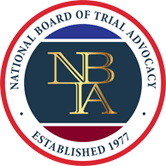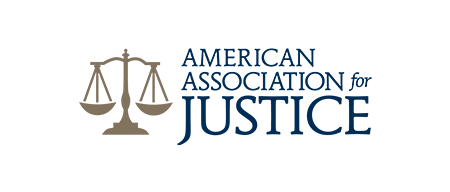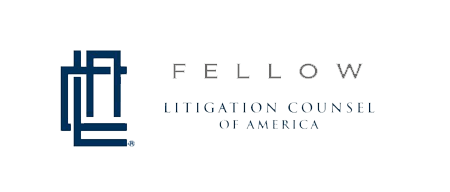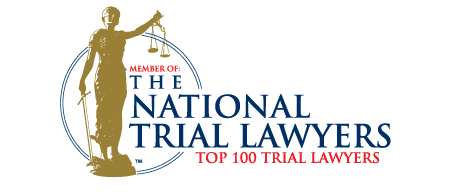Albuquerque Nursing Home Malnutrition Lawyer

Albuquerque Nursing Home Malnutrition Attorney
You should be able to trust a nursing home facility to provide attentive care to you or your loved one. When they fail this duty, you have the right to seek justice and compensation for any suffering caused. The Albuquerque nursing home malnutrition lawyers of Branch Law Firm can help you through the legal process of holding those responsible accountable for their actions.
Nursing Home Care and Malnutrition
Malnutrition in a nursing home happens when a resident doesn’t receive the proper food and drink needed. This is also true if the facility fails to monitor and assess residents appropriately.
The nursing home facility must serve residents a well-balanced diet and ensure their hydration needs. Failure to do so can risk muscle weakness and kidney failure. Wounds heal more slowly without proper hydration, and the resident becomes more prone to bedsores and infection.
In 2024, 88% of New Mexico nursing homes had at least one violation during unannounced inspections. Violations often happen due to a lack of staffing and failure to recognize the signs of dehydration and malnutrition. Malnutrition was found to be a factor in about 20% of nursing home residents, though not every malnutrition case is due to neglect. In some cases, other health factors may be present.
Signs of Nursing Home Malnutrition Cases
If you’re worried that your loved one may be suffering from malnutrition while they’re under the care of a nursing home, there are certain warning signs to watch for. These include:
- Dry mouth or cracked lips, sunken eyes, or dehydrated appearance
- Noticeable weight loss without explanation
- Darker urine or decreased urination
- Confusion or dizziness
- Slow wound healing, frequent infections, bedsores
- Difficulty swallowing or eating, and not receiving assistance
- Lack of fluid availability
- Poorly balanced meals or limited variety
In cases of suspected neglect, it’s critical to document the observations, take photographs, and have the resident evaluated by a medical professional.
Establishing Malnutrition-Related Liability
The Albuquerque nursing home malnutrition lawyers of Branch Law Firm focus on evaluating nursing home malnutrition through specific steps. This includes four basic elements that must be proven:
- Duty. The facility owed the resident a legal duty to provide care. This includes adequate nutrition, hydration, and assistance.
- Breach. The facility failed to meet its duty.
- Causation. The breach caused malnutrition, dehydration, or other harm.
- Damages. The resident suffered harm as a result. This may include medical costs, pain and suffering, and even wrongful death. Compensation could include present and future costs, emotional distress, and punitive damages in certain instances.
Preserving evidence is imperative. Nursing home records can be destroyed or altered to cover up foul play. That’s why it’s so important to act quickly, preserving logs, meal sheets, and fluid intake records.
What to Do if You Suspect Malnutrition in a Nursing Home Patient
If your loved one lives in a nursing home and you suspect malnutrition, swift action can make a big difference for their health. Be sure to take photos or video of the resident’s weight loss, bedsores, or untouched food tray. You can ask the facility for the resident’s care plan, weight measurements, and dietary logs. These should also include fluid intake and staff assignment sheets.
Have a physician evaluate the resident’s condition. They’ll be able to determine whether malnutrition or dehydration is a sign of neglect or other serious health conditions.
In writing, express your concerns to the facility’s administrator and keep a copy of the communication for your records. You’re also able to file a complaint with the New Mexico Health Care Authority Division of Health Improvement by calling 1-800-283-4465.
Contacting a nursing home malnutrition attorney early on gives you a better chance of preserving evidence and having a successful legal case. Branch Law Firm can help you preserve evidence and take the necessary legal steps to protect your loved one’s rights and health.
Why You Should Choose Branch Law Firm
Branch Law Firm is based in Albuquerque and holds a deep familiarity with New Mexico nursing home laws and regulations. We have years of experience handling elder-care neglect cases, including malnutrition claims within long-term care facilities.
When the care of a loved one is in question, it can be especially difficult for the family. That’s why we treat each case with compassion and understanding. We work tirelessly to defend your loved one’s rights and fight for the care they deserve.
FAQs
Is Dehydration Neglect in a Nursing Home?
Yes, a nursing home resident suffering from dehydration is considered neglect by the facility. They’re obligated to provide sufficient fluids, monitor intake, and intervene when a resident can’t drink independently. Neglect can be established in a legal claim by demonstrating that the duty of care was breached and caused harm to the patient. Nursing home residents are at an extreme risk of dehydration because they’re unable to get enough water orally.
Who Regulates Nursing Homes in New Mexico?
In New Mexico, nursing homes are regulated by the New Mexico Health Care Authority. The Division of Health Improvement oversees nursing home licensure, certification, and investigations regarding abuse and neglect. Nursing home administrators are specifically held responsible by the Board of Nursing Home Administrators and the New Mexico Regulation & Licensing Department.
Which Food Must Not Be Served to Residents in a Nursing Home?
Food service standards for long-term care settings involve avoiding higher-risk items. These can include raw and undercooked meats and fish, raw eggs, and unpasteurized milk and cheeses. These foods tend to carry an elevated risk of food-borne illnesses, which can easily compromise residents’ immune systems—especially more vulnerable populations.
What Is the Federal Law that Regulates Nursing Homes?
The Nursing Home Reform Act (NHRA) is the main federal law regulating nursing homes. The NHRA sets minimum standards for nursing homes participating in the national Medicare and Medicaid programs. This act includes requirements that cover resident rights, the quality of care provided, and guidelines for preventing neglect and abuse.
Hire a Nursing Home Malnutrition Lawyer
When you’re ready to hire a nursing home malnutrition lawyer, give Branch Law Firm a call to schedule a consultation. We’re ready to investigate the care concerns for your loved one and get your family the compensation necessary for recovery.
 Knowledge Experience Compassion Service
Knowledge Experience Compassion Service 






